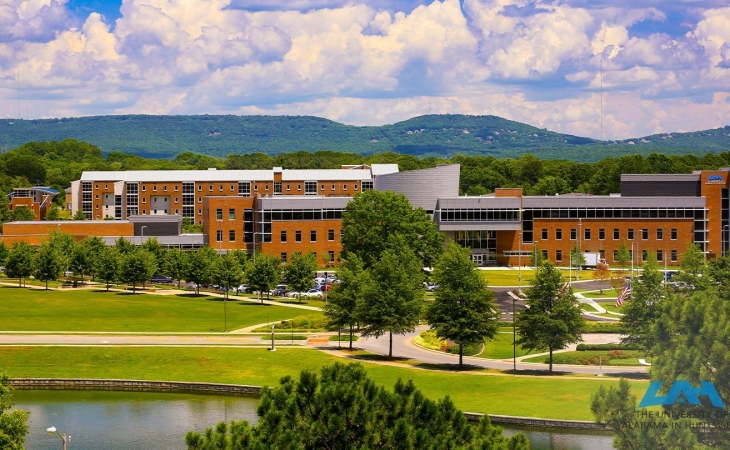MONTGOMERY, Ala. – The Alabama Supreme Court ruled unanimously Friday to allow a free speech lawsuit to proceed by a Young Americans for Liberty chapter and student-member Joshua Greer against the University of Alabama in Huntsville. Alliance Defending Freedom attorneys, who represent the campus group, filed an appeal in February with the state’s high court after a lower court dismissed the campus free-speech case.
The Young Americans for Liberty chapter is challenging the university’s policy that limits most student speech to small “speech zones” and requires students to obtain a permit three business days in advance to speak on campus about most topics—both in violation of the Alabama Campus Free Speech Act and the Alabama Constitution.
“College students have the freedom to share their beliefs anywhere on campus; they don’t need permission from college officials to speak, nor should they have to jump through burdensome and illegal hoops just to talk with their classmates outside,” said ADF Senior Counsel and Vice President of Appellate Advocacy John Bursch. “We’re pleased the Alabama Supreme Court has affirmed the freedom of all college students to speak freely on campus without being restricted to small speech zones. The university never should have attempted to skirt the explicit provisions of state law that reinforce these rights.”
“Alabama state law guarantees that all students at public universities can freely speak outdoors on campus grounds. University campuses should be encouraging free speech, not stifling it with burdensome and illegal rules like limiting speech to certain zones and requiring even a single student to get a permit from college administrators before sharing his views,” said ADF Legal Counsel Mathew Hoffmann, who argued before the court on behalf of the student group. “We commend the Alabama Supreme Court for allowing this lawsuit to uphold the rights of Young Americans for Liberty to exercise its freedoms under state law to proceed.”
“It’s a shame that schools such as UAH are often so committed to regulating student speech on campus that they’ll go as far as to violate state law,” said JP Kirby, director of Student Rights at YAL. “I’m thankful that we have students like Joshua Greer who stand up and fight for their rights. We’re very thankful that the work put into this case has paid off for Alabama students.”
Alabama’s Campus Free Speech Act requires public colleges and universities to respect the free speech rights of students on campus and explicitly prohibits speech zones, prior permission requirements, and other speech-suppressive measures.
Yet, as ADF attorneys explained in the lawsuit, the university’s policy illegally prevents students from engaging in spontaneous expression and from promoting their events. Student members of Young Americans for Liberty want to engage their peers in important policy debates about a variety of issues including gun control, federalism, and other topics, but are refraining from doing so for fear of violating the university’s burdensome speech policy. The policy requires students to share their views on certain topics in specified speech zones and request approval to speak days in advance. And because the permits are subject to the university’s approval, administrators can pick and choose which events and viewpoints are allowed on campus.
The university’s policy “plainly violates the [Alabama Campus Free Speech] Act insofar as the policy creates designated areas for spontaneous speech; those areas are prohibited free-speech zones under the Act,” the Alabama Supreme Court wrote in its opinion in Young Americans for Liberty at University of Alabama in Huntsville v. St. John IV. The court also expressed “serious doubt” about the legality of the university’s requirement that even a single student seek permission in advance before speaking in the outdoor areas of his campus.
Brent Woodall, one of more than 4,600 attorneys in the ADF Attorney Network, is serving as local counsel for the student group.
The ADF Center for Academic Freedom is dedicated to protecting First Amendment and related freedoms for students and faculty so that everyone can freely participate in the marketplace of ideas without fear of government censorship.
# # #
